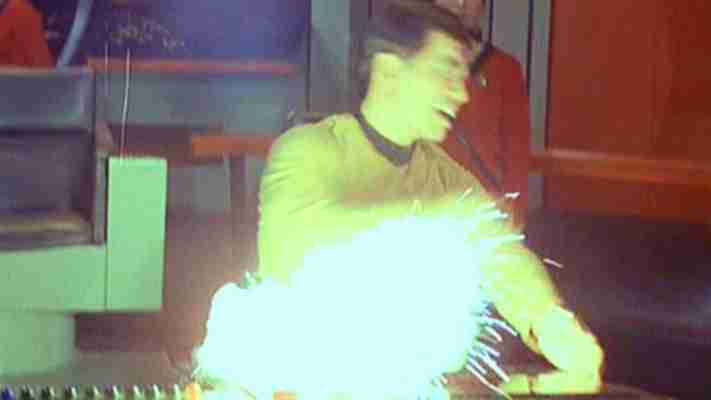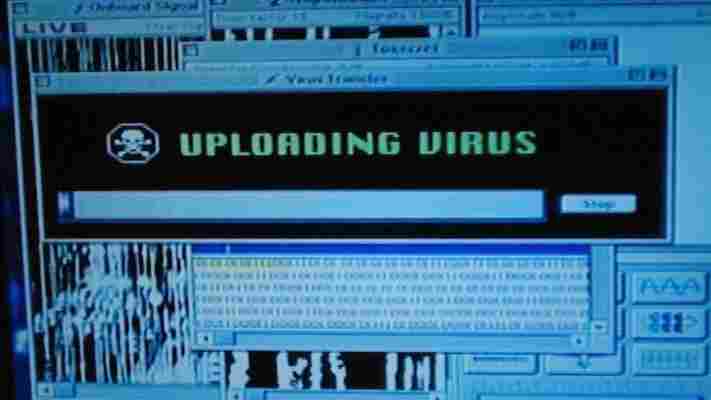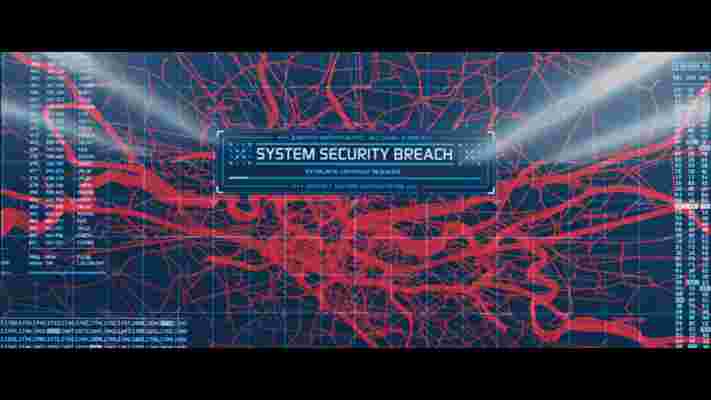Top things Hollywood thinks that computers can do
Although technology is a massive part of our lives, the big problem with trying to show it on screen is that it's relatively dull to look at. Well, that is until it gets the full Hollywood makeover, where technology moves from the dull to the ridiculous and completely outside the bounds of reality. We've just updated this list with a few of our new favourite mistakes, but here's everything that Hollywood thinks that computers can do.
12. Backups don't exist
With everything stored on computers, Hollywood's new plot device is that all records (financial, personal, criminal and so on), can be accessed via the internet and deleted with a worm that infects the internet. Even if this were possible for such a programme to delete specific bits of information, it rather conveniently ignores one major thing: backups. In Live Free or Die Hard (only the second worst Die Hard film), the bad guy tries to delete all financial records in the US, largely forgetting that they're extremely well protected and, in any case, financial companies are pretty hot on keeping backups, as they really don't like losing money.
11. Bad guys attack computers in the most convoluted ways
Why go for an easy plan, when you can have a hideously overblown method of attacking the good guys' computers? Increasingly, as Hollywood pays more and more attention to tech as part of the plot, the bad guys are coming up with horrendously complicated plans that are massively prone to failure. Take, the latest Bond film, Skyfall, for example. Javier Bardem, as Silva, has this plan: get captured and put in a cell, so that his laptop can be plugged into MI6's network, where an automatic virus can infect its security system and release him. That's quite a lot of assumptions that Silva has to make for that plan to come off.
10. When systems go wrong, stuff starts to explode
When a computer crashes in real life it's often quite annoying, but spectacularly dull to watch. In films, when a computer goes wrong, it's very exciting and stuff starts to explode. The way computers go wrong depend on the film or TV show.
In Star Trek, Kirk need only ask an alien computer to "Explain. The. Human emotion. Known. As.....Love", for it to go into a bizarre loop where its logical systems can't computer and it explodes. In Star Wars Episode I: The Phantom Menace (one of the worst films ever made), the destruction of the main ship causes the droid army to lose its control signal and fail - one of them even has his head fall off. Quite why you'd ever build this feature into your army of destruction is beyond us. Thankfully this doesn't happen in real life - imagine your keyboard exploding just because Windows had crashed again.

^The United Federation of Planets was inundated with health and safety complaints, after building their control panels out of explosives
9. Guessing a password is easy
In all films when the protagonist gets to a vital computer that's protected by a password, guessing the password is always easy. Given three chances to make the correct choice, the following steps are taken: 1) they type one wrong password, 2) they think hard and type another wrong password, 3) they look round the room they're in, have a flashback to an earlier point in the show or film, find some inspiration and type in the correct password.
Just see the bit in Watchmen when they correctly guess Ozymandias' password by finding a book on his desk. It's almost as if in Hollywood people are required to enter passwords that are both easy to guess and have some kind of obvious personal connection to the person. And by no means ever should the password contain upper- and lower-case characters or numbers to make them harder to break.
8. Online chats always display each character as its typed
If anyone in a film or TV show uses instant messaging, each character of a message is displayed as its typed. Not only that, but the typing is always faster than fluent touch-typists can manage and no mistakes are ever made - not once is the backspace key pressed in the entire conversation.
No IM system in popular use does this because it makes it harder to edit a response, people can see your response as you edit it, and if you accidentally type something into the chat window, such as a password for your email account, you've got time to delete it before the other person sees it.
7. Deleted files are removed from the screen
You know the point in the film. The good guys have just got access to a computer and are looking at the secret files when suddenly the bad guy hacks into the computer and starts deleting files. Not only are they gone from the hard disk, but they disappear from the application that they're open in.
Our heroes look confused and start wildly typing away in an effort to stop the process. However, not once do they think to turn the computer off and remove the hard disk or unplug it from the internet to stop the hacker from having any access to it. In Hollywood there's no such thing as an undelete utility so the files are apparently gone forever. It's enough to make you cry.
6. Viruses always do something visual
In real life if you get infected with a virus (fake AV scams the exception to the rule), you won't notice anything bar the occasional fault and sometimes system resources being consumed. The reason for this is that the hacker is after money by taking over your computer, so announcing their presence would be stupid. It would be like a bank robber tunnelling into the vault only to run up to the banking floor during the lunchtime rush, waving and shouting at everyone about what they're doing.
The things viruses do in films is always stupid. They can display a skull and crossbones for no conceivable reason, or they may display a message saying something like "deleting files". In all cases, they leave the computer user looking confused before bashing their keyboard, trying to circumvent what the hacker's doing.

^Who needs security software, when viruses are so helpful?
5. Computers have to be controlled by keyboard
Despite the fact that when computers are used in the real world, the keyboard is only used for the occasional shortcut or for actual typing, film and TV characters will only use the keyboard. At stupid speeds.
Yep, that's right, they put down the mouse and turn to the keyboard, wildly bashing at keys while windows pop up, move around and images are zoomed and enhanced. A few more key presses later and the character will probably mutter something like, "I'm opening a port now" or "I just need to bypass the encryption algorithm on the mainframe" or other completely meaningless and stupid phrases. Oh, and they always have the most annoying, clicky mechanical keyboards of the type that would drive their co-workers completely mad.
4. The good guys always use Macs
Macs are cool, good guys are cools, ergo good guys use Macs. You'll never see a bad guy pull out his gun, shoot a bus-load of nuns and then pull out his Mac Book Pro and send a message. In particular, good-guy hackers will use a Mac, which seems unlikely as hackers are more likely to have a Linux computer and, failing that, the operating system that they're most likely to attack: Windows.
3. You can zoom and enhance any footage
This has long been the staple of the lazy writer (particularly those working for CSI): a security camera or photo is put on a screen, someone asks for zone G4 to be zoomed and enhanced, then as if by magic stunning detail appears from nowhere and the criminal is identified. For this system to work it either requires every camera and CCTV system to use Gigapixel resolutions, or such incredible computing technology that Hollywood could throw away all of its expensive HD cameras and shoot everything using £50 camcorders. Bladerunner's the film that started the craze, but the Red Dwarf parody brilliantly pilliorises it.
2. Screens must light up people's faces
For some reason, Hollywood believes that when someone uses a monitor, it must without fail project its image over their face. The power required for a monitor to do this would be immense - well, let's face it, you'd actually have to have a projector inside. Can you imagine what this would do to your eyes if your monitor worked like this? You'd definitely be blind.
Then there's the question of privacy. Sitting there with what you're viewing plastered all over your face would give the game away to the point where even Internet Explorer's InPrivate browsing would be entirely pointless.
1. Left long enough, a computer becomes intelligent
From V'ger in Star Trek the motion picture to Skynet in the Terminator films, Hollywood has this fascination that left turned on for long enough a computer will become sentient. Usually this coincides with it becoming evil and devising a dastardly plan for wiping out humanity. Quite why is beyond us - what would a computer do by itself anyway, aside from sitting in room by itself whirring away?
This is complete nonsense. Any computer left on permanently would suffer at least a few, if not all, of the following problems: mechanical failure (hard disk/SSD, fans, power supply and so on), software crash (operating system falling big time or some other bit of software just failing to work) and overheating due to dust being sucked into the case. The only thing that leaving a computer on will do is get you a massive electricity bill.

Your comment